The man who gambled his firm on a £50,000 sword
- Published
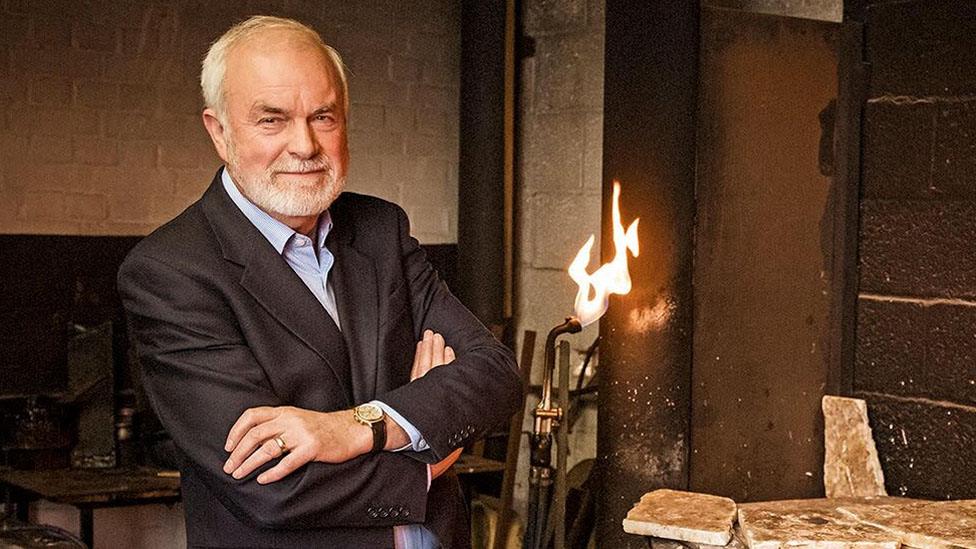
Grant has been working with silver and other precious metal, for more than 50 years
The BBC's weekly The Boss series profiles different business leaders from around the world. This week we speak to London-based silversmith Grant Macdonald.
When Grant Macdonald walked out of the Middle Eastern royal palace he says his shoes "hardly touched the carpet".
He had just secured a giant order that would transform his business. And almost 40 years later, the memory still gives him goosebumps.
"It was an amazing feeling... just telling you this now gives me the greatest feeling of achievement, exactly as it did on that day in the early '80s," says the 71-year-old.
A silversmith who first set up his business in the 1960s, the UK's economic downturn of the late 1970s had made him increasingly seek overseas commissions.
From 1979 he started to get some small orders from a country in the Gulf, which for confidentiality reasons he declines to name.
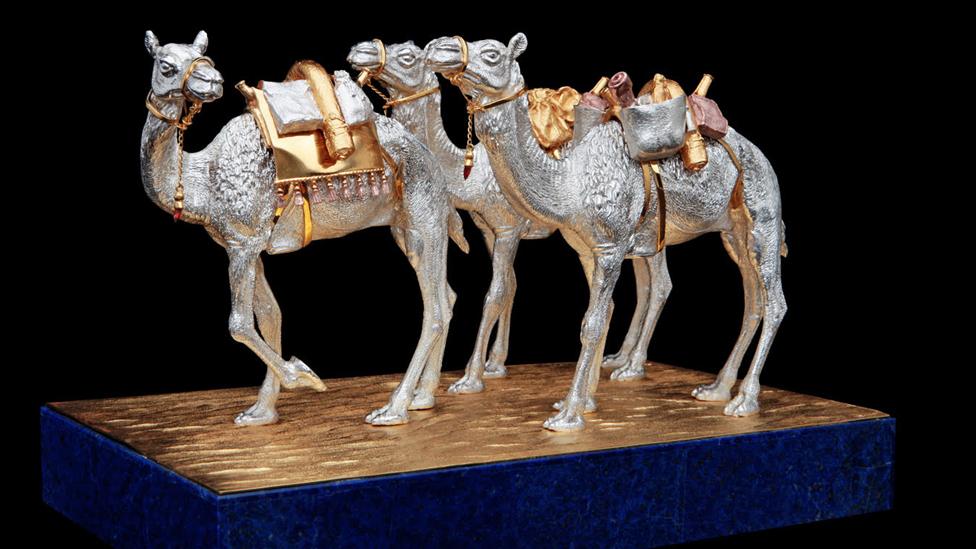
The Middle East remains the company's largest market
A couple of years later, during one of his regular visits to the nation, Grant was asked if he would like to see the finest gift that its royal family gives out to visiting dignitaries - a ceremonial sword.
He said "yes", and while he extolled its virtues out of politeness, he was not particularly impressed with the workmanship. So Grant suggested that he could perhaps make something even better.
Going back to his hotel room, he drew up a design on paper, and from that he was commissioned to make one example. The only problem was the cost of the materials, which could have wiped out his business. Undeterred, Grant took the gamble and bought all the gold, diamonds and rubies he needed, and he and his team set to work.
Thankfully the royal family liked the £50,000 sword (£190,000 at today's prices) so much that they ordered 15 more.
"The workshop had put every ounce of skill into making that sample sword perfect, our reward was a massive order that set the company off in a different trajectory," says Grant.
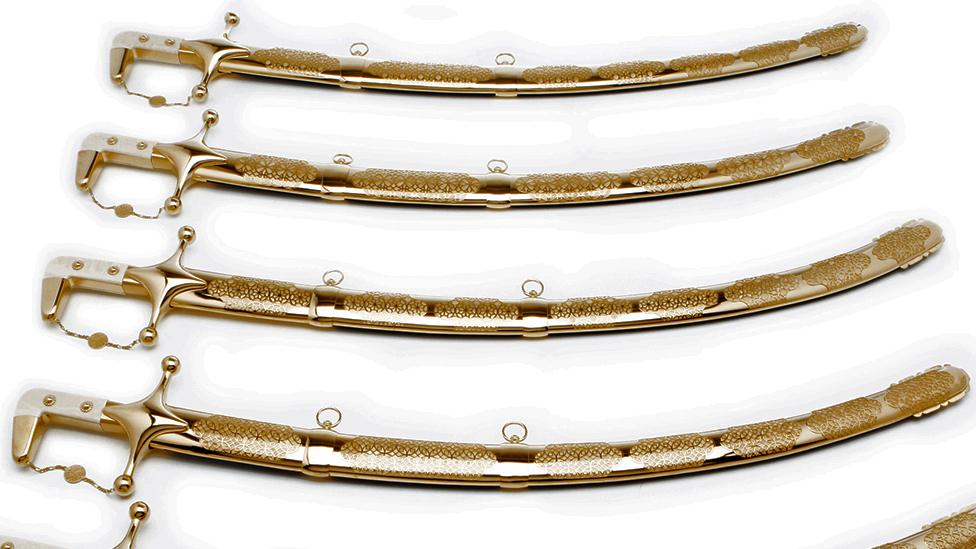
Making ceremonial swords for a royal family in the Middle East transformed the business
Today his multimillion pound annual turnover company - Grant Macdonald London - still gets much of its business from the Middle East, with Grant having flown to the region almost every month for more than 30 years. "The Middle East has been very good to us," he says.
The business does, however, have a royal warrant from the Prince of Wales, who has bought commissions in the past.
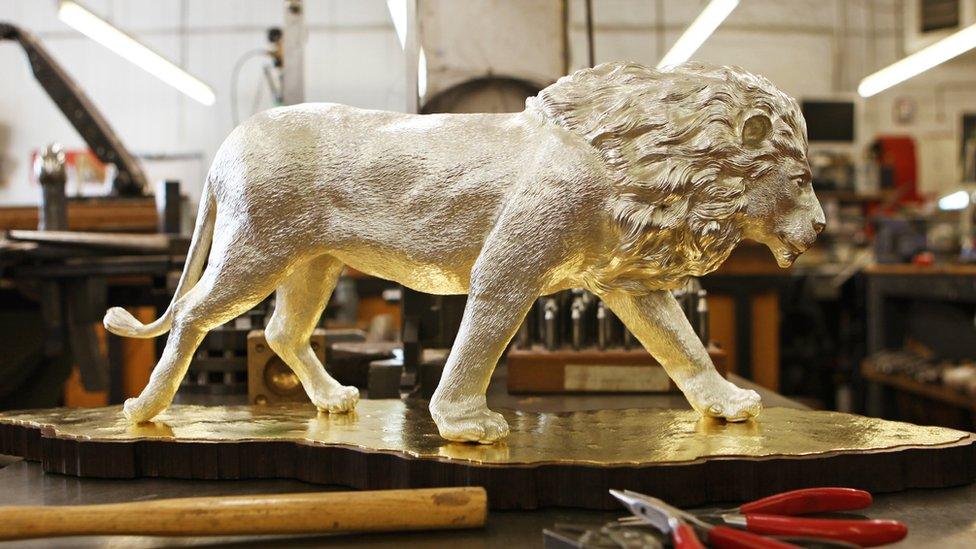
Some of the firm's commissions take months to make
The son of a doctor, Grant was born and raised in north London. He says he first became interested in working with silver and other precious metals when he was a teenager. "It all started when one of dad's patients showed me how to make a silver spoon when I was 14."
A young Grant would then tinker on his designs in a workshop underneath his father's consulting room. He says his dad would stamp on the floor when he wanted him to stop hammering.
After five years at London's Central School of Art, he first worked in a jewellery shop, repairing rings. Private commissions soon followed, and he formed his company Silverform in the mid-60s. The name change to Grant Macdonald London came in 1971.
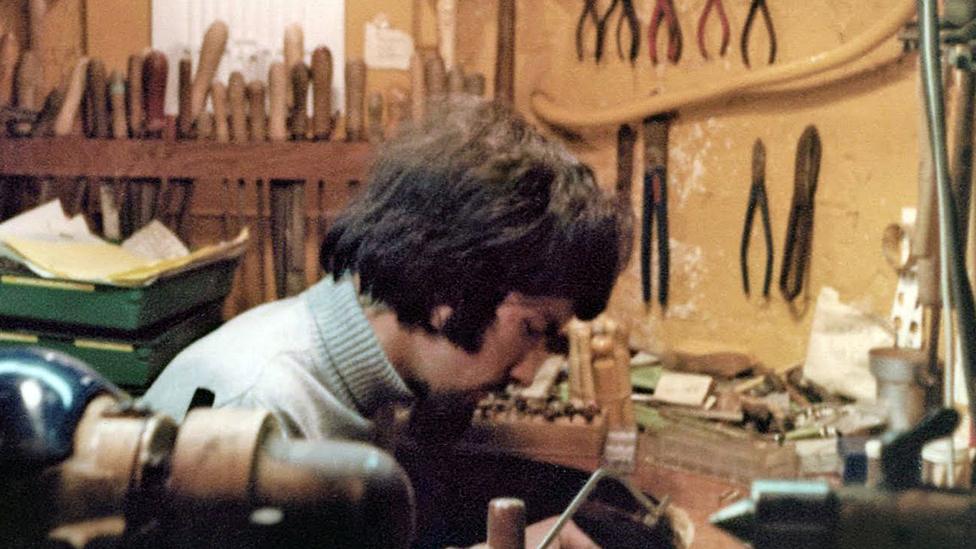
A young Grant Macdonald (pictured) started his business after first working for a jeweller
The business today has 18 employees, who make everything from £200 silver cufflinks to large bespoke commissions costing up to £250,000. The biggest items can take many months to complete.
While the company does now utilise technology, such as 3D design and printing, Grant says that the skill of the human workforce is still central. "Today we're hugely reliant on tech, but without the people in the workshop we'd be lost - they'd just be a pile of machines."
Peter Taylor, director of the Goldsmiths Centre, a UK charity that trains jewellers and goldsmiths, says that Grant is "one of the foremost silversmiths and designers of this generation".
He adds: "Grant is well-known and respected throughout the industry, and has grown a business that operates successfully here in the UK and overseas."
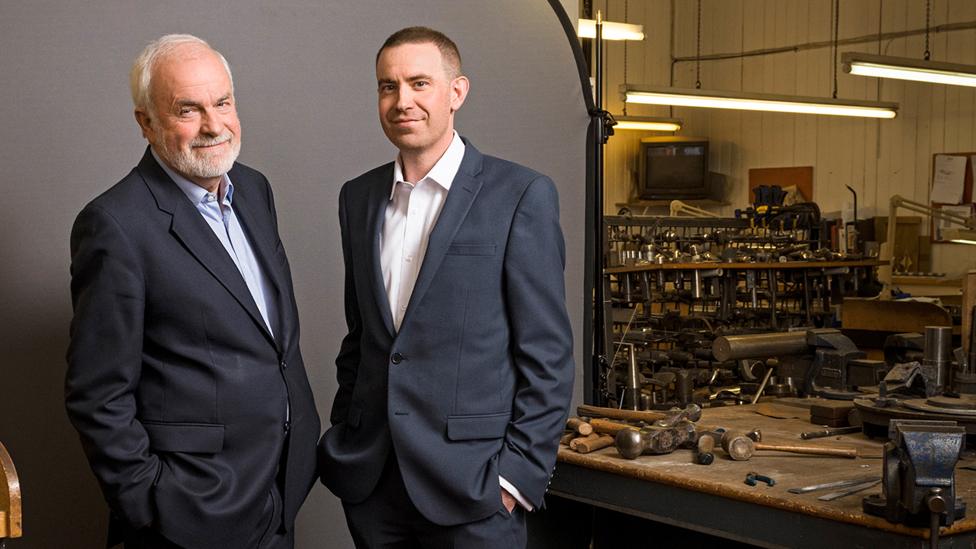
Grant is handing the running of the business over to his son George
With Grant now in his 70s, he is readying the business for its next chapter, which will see the reins being handed over to his son George. George has been with the company since 2003, after being lured away from a career in publishing, where he was a graphic designer and photographer.
Grant says that having his son on board is a great comfort, as it will mean the business continues. "To have worked all my life, and then had to sell up, pay everyone off, and walk off into the horizon is a terrible thought."

More The Boss, external features:

He isn't out of the door yet though, and still works three days a week at the company's office and workshop in Blackfriars, in the City of London. He also has a workshop at home, where he intends to teach the next generation.
"Teaching my grandchildren how to make a silver spoon is definitely on my list of things to do," he says.